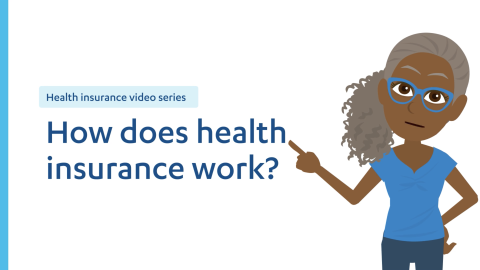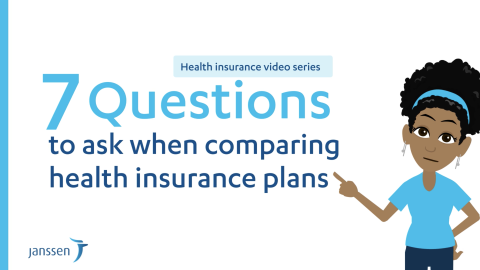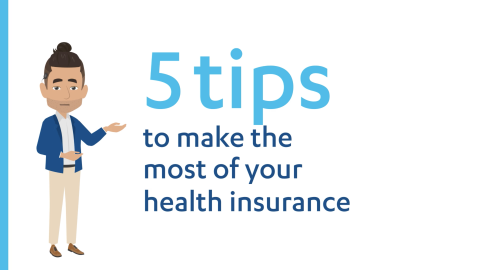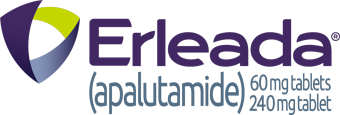Before taking ERLEADA®, tell your healthcare provider about all your medical conditions, including if you:
- have a history of heart disease
- have high blood pressure
- have diabetes
- have abnormal amounts of fat or cholesterol in your blood (dyslipidemia)
- have a history of seizures, brain injury, stroke, or brain tumors
- are pregnant or plan to become pregnant. ERLEADA® can cause harm to your unborn baby and loss of pregnancy (miscarriage).
- have a partner who is pregnant or may become pregnant.
- Males who have female partners who are able to become pregnant should use effective birth control (contraception) during treatment and for 3 months after the last dose of ERLEADA®.
- Males should use a condom during sex with a pregnant female.
Talk with your healthcare provider if you have questions about birth control.
- are breastfeeding or plan to breastfeed. It is not known if ERLEADA® passes into breast milk.
Tell your healthcare provider about all the medicines you take, including prescription and over-the-counter medicines, vitamins, and herbal supplements. ERLEADA® can interact with many other medicines.
You should not start or stop any medicine before you talk with the healthcare provider that prescribed ERLEADA®.
Know the medicines you take. Keep a list of them with you to show to your healthcare provider and pharmacist when you get a new medicine.
How should I take ERLEADA®?
- Take ERLEADA® exactly as your healthcare provider tells you.
- Do not stop taking your prescribed dose of ERLEADA® without talking with your healthcare provider first.
- Take your prescribed dose of ERLEADA® 1 time a day, at the same time each day.
- Take ERLEADA® with or without food.
- Swallow ERLEADA® tablets whole.
- If you miss a dose of ERLEADA®, take your normal dose as soon as possible on the same day. Return to your normal schedule on the following day. You should not take extra tablets to make up the missed dose.
- You should start or continue a gonadotropin-releasing hormone (GnRH) analog therapy during your treatment with ERLEADA® unless you have had a surgery to lower the amount of testosterone in your body (surgical castration).
- If you take too much ERLEADA®, call your healthcare provider or go to the nearest hospital emergency room.
What are the possible side effects of ERLEADA®?
ERLEADA® may cause serious side effects including:
- Heart Disease, Stroke, or Mini-Stroke. Bleeding in the brain or blockage of the arteries in the heart or in part of the brain have happened in some people during treatment with ERLEADA® and can lead to death. Your healthcare provider will monitor you for signs and symptoms of heart or brain problems during your treatment with ERLEADA®. Call your healthcare provider or get medical help right away if you get:
-
- chest pain or discomfort at rest or with activity
- shortness of breath
- numbness or weakness of the face, arm, or leg, especially on one side of the body
|
-
- trouble talking or understanding
- trouble seeing in one or both eyes
- dizziness, loss of balance or coordination, or trouble walking
|
- Fractures and Falls. ERLEADA® treatment can cause bones and muscles to weaken and may increase your risk for falls and fractures. Falls and fractures have happened in people during treatment with ERLEADA®. Your healthcare provider will monitor your risks for falls and fractures during treatment with ERLEADA®.
- Seizure. Treatment with ERLEADA® may increase your risk of having a seizure. You should avoid activities where a sudden loss of consciousness could cause serious harm to yourself or others. Tell your healthcare provider right away if you have a loss of consciousness or seizure. Your healthcare provider will stop ERLEADA® if you have a seizure during treatment.
- Severe skin reactions. Treatment with ERLEADA® may cause severe skin reactions that can be life‑threatening or may lead to death. Stop taking ERLEADA® and get medical help right away if you develop any of these signs or symptoms of a severe skin reaction:
-
- severe rash or rash that continues to get worse
- fever or flu-like symptoms
- swollen lymph nodes
|
-
- blisters or sores in the mouth, throat, nose, eyes, or genital area
- blistering or peeling of the skin
|
The most common side effects of ERLEADA® include:
- feeling very tired
- joint pain
- rash. Tell your healthcare provider if you get a rash
- decreased appetite
- fall
|
- weight loss
- high blood pressure
- hot flash
- diarrhea
- fracture
|
Your healthcare provider may reduce your dose, temporarily stop, or permanently stop treatment with ERLEADA® if you have certain side effects.
ERLEADA® may cause fertility problems in males, which may affect the ability to father children. Talk to your healthcare provider if you have concerns about fertility. Do not donate sperm during treatment with ERLEADA® and for 3 months after the last dose of ERLEADA®.
Tell your healthcare provider if you have any side effect that bothers you or that does not go away.
These are not all the possible side effects of ERLEADA®.
Call your doctor for medical advice about side effects. You may report side effects to FDA at 1-800-FDA-1088.
Please see the full Prescribing Information for ERLEADA®.
cp-50508v5







